#state of the kingdom
Explore tagged Tumblr posts
Text
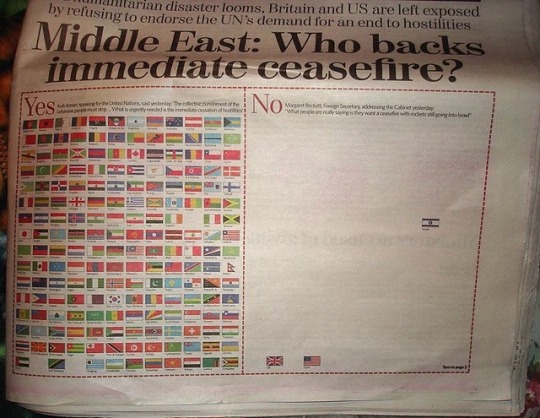
Huh. says it all really.
#Free palestine#israel#palestine#united kingdom#united states#politics#canada#brazil#france#italy#sweden#norway#south africa#spain#reland#South korea
10K notes
·
View notes
Text
The fact that we, Arabic-speaking average people(aka non-journalists), have to keep up with translating Palestinian posts from Arabic to English to avoid having Western Media/Pro-Zionists mistranslate on purpose, says enough about how we all lost trust in the media. From the "there's a list" guy who was standing in front of a calendar and condemning the days of the week, to the BBC's mistranslation of a freed Palestinian hostage's interview. I will try my best to keep translating whatever I can find, and I encourage my fellow bilingual/multilingual Arabs to do the same. It's already sad enough that Palestinian journalists and even children have to use English in videos instead of their native tongue in order to get the world leaders' attention.
Please keep speaking about Palestine.
#free palestine#palestine#from the river to the sea palestine will be free#gaza#palestine resources#signal boost#social justice#colonialism#imperialism#jerusalem#history#free gaza#united nations#united states#united kingdom#merry christmas#Christmas#happy holidays#thanksgiving#winter#halloween
18K notes
·
View notes
Text

Just in case you had any doubts about how the coming administration sees the conflict...
#Just in case you had any doubts about how the coming administration sees the conflict...#usa is a terrorist state#usa is funding genocide#kamala harris#democrats#usa news#usa politics#usa#american indian#american#america#anti kamala harris#anti democrat#fuck kamala harris#ausgov#politas#auspol#tasgov#taspol#australia#fuck neoliberals#neoliberal capitalism#anthony albanese#albanese government#united states#united kingdom#unitedstateofamerica#unitedsnakes#united states of america#united states of israel
1K notes
·
View notes
Text
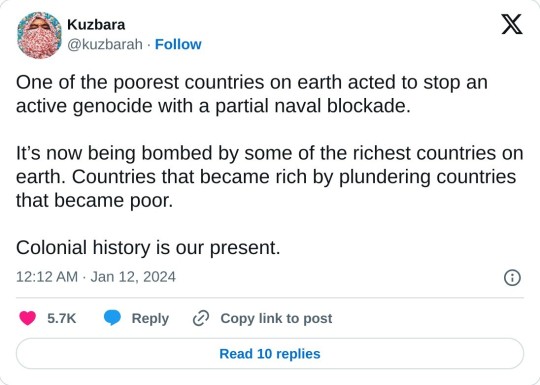
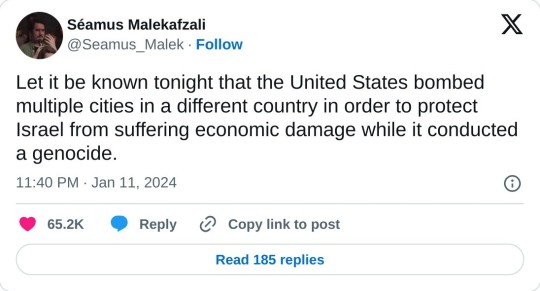
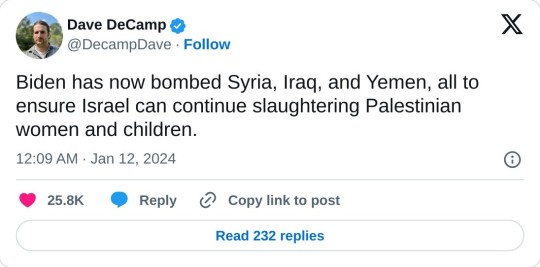

#Yemen#Gaza#Palestine#US#United States#UK#u#United Kingdom#Joe Biden#bombing#colonial history#colonialism#colonial violence#war#Netherlands#Bahrain#houthis
4K notes
·
View notes
Photo





[Headcanon] Cheeky surprise
#my art#totk#tears of the kingdom#tloz#loz#legend of zelda#the legend of zelda#totk basket#totk ranran#yes i'm nicknaming them ranran i'm not calling them richard asdgsjh#and the girl is basket#i just drew a what if dragon form since people think they are connected to dragons#as i stated i'm not drawing from any leak ive seen so far#totk headcanon#totk spoilers#just in case#fan art#doodles#totk rauru#totk sonia#rauru#sonia
12K notes
·
View notes
Text





using my pencil like an idiot
I really like this pencil it’s so silly ❤️
#misc scribbles in a sleep deprived state#post totk so no rauru arm </3#the legend of zelda#legend of zelda#breath of the wild#tears of the kingdom#tloz#loz#totk#botw#totk Zelda#totk link#totk zelink#Zelda#link#zelink#wtf how do i tag again#loz fanart#tloz fanart#botw zelink#Nintendo#art#artists on tumblr#my art
2K notes
·
View notes
Text
Double dose of articles about how crime is actually plummeting
From the UK:
"Seventy-eight per cent of people in England and Wales think that crime has gone up in the last few years, according to the latest survey. But the data on actual crime shows the exact opposite.
As of 2024, violence, burglary and car crime have been declining for 30 years and by close to 90%, according to the Crime Survey for England and Wales (CSEW) – our best indicator of true crime levels. Unlike police data, the CSEW is not subject to variations in reporting and recording.
The drop in violence includes domestic violence and other violence against women. Anti-social behaviour has similarly declined. While increased fraud and computer misuse now make up half of crime, this mainly reflects how far the rates of other crimes have fallen.
All high-income countries have experienced similar trends, and there is scientific consensus that the decline in crime is a real phenomenon.
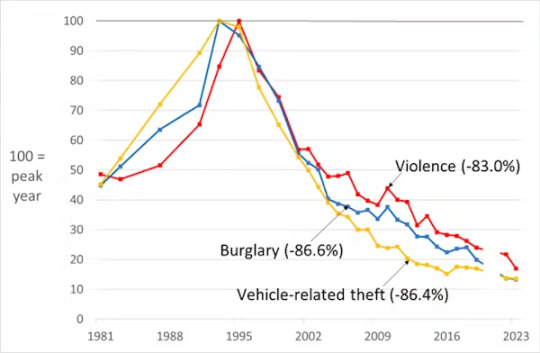
The perception gap
So why is there such a gulf between public perception and the reality of crime trends? A regular YouGov poll asks respondents for their top three concerns from a broad set of issues. Concern about crime went from a low in 2016 (when people were more concerned with Brexit), quadrupled by 2019 and plummeted during the pandemic when people had other worries. But in the last year, the public’s concern about crime has risen again.
There are many possible explanations for this, of which the first is poor information. A study published in 1998 found that “people who watch a lot of television or who read a lot of newspapers will be exposed to a steady diet of crime stories” that does not reflect official statistics.
The old news media adage “if it bleeds, it leads” reflects how violent news stories, including crime increases and serious crimes, capture public attention. Knife crime grabs headlines in the UK, but our shock at individual incidents is testament to their rarity and our relative success in controlling violence – many gun crimes do not make the news in the US.
Most recent terrorist attacks in the UK have featured knives (plus a thwarted Liverpool bomber), but there is little discussion of how this indicates that measures to restrict guns and bomb-making resources are effective."
-via The Conversation, May 13, 2024
And the United States:
"[The United States experienced a spike in crime rates in 2020, during the pandemic.] But in 2023, crime in America looked very different.
"At some point in 2022 — at the end of 2022 or through 2023 — there was just a tipping point where violence started to fall and it just continued to fall," said Jeff Asher, a crime analyst and co-founder of AH Datalytics.
In cities big and small, from both coasts, violence has dropped.
"The national picture shows that murder is falling. We have data from over 200 cities showing a 12.2% decline ... in 2023 relative to 2022," Asher said, citing his own analysis of public data. He found instances of rape, robbery and aggravated assault were all down too.
Yet when you ask people about crime in the country, the perception is it's getting a lot worse.
A Gallup poll released in November found 77% of Americans believed there was more crime in the country than the year before. And 63% felt there was either a "very" or "extremely" serious crime problem — the highest in the poll's history going back to 2000.
So what's going on?
What the cities are seeing
What you see depends a lot on what you're looking at, according to Asher.
"There's never been a news story that said, 'There were no robberies yesterday, nobody really shoplifted at Walgreens,'" he said.
"Especially with murder, there's no doubt that it is falling at [a] really fast pace right now. And the only way that I find to discuss it with people is to talk about what the data says." ...
For cities like San Francisco, Baltimore and Minneapolis, there may be different factors at play [in crime declining]. And in some instances, it comes as the number of police officers declines too.
Baltimore police are chronically short of their recruitment goal, and as of last September had more than 750 vacant positions, according to a state audit report...
In Minneapolis, police staffing has plummeted. According to the Star Tribune, there are about 560 active officers — down from nearly 900 in 2019. Mannix said the 2020 police killing of George Floyd resulted in an unprecedented exodus from the department...
In Minneapolis, the city is putting more financial resources into nontraditional policing initiatives. The Department of Neighborhood Safety, which addresses violence through a public health lens, received $22 million in the 2024 budget."
-via NPR, February 12, 2024
#crime#violate crime#united kingdom#england#wales#united states#us politics#baltimore#san francisco#police#defund the police#good news#hope
1K notes
·
View notes
Text



Ensemble
c.1855
American or European
The MET (Accession Number: 1992.31.2a–c)
#ensemble#day dress#evening dress#1850s#crinoline era#1855#green#off white#19th century#silk#united states#france#united kingdom#the met#this is one of my favorite garments of all time
1K notes
·
View notes
Text
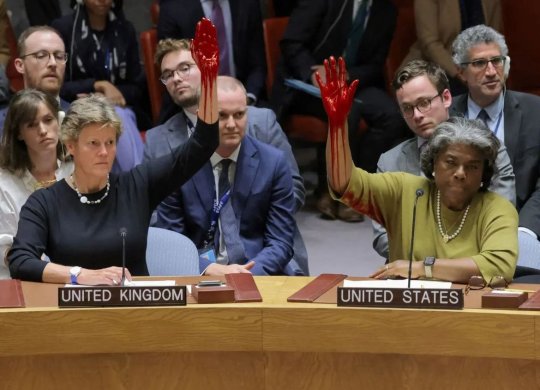
UN Security Council rejects ceasefire proposal in Gaza Strip
#UNSC#politics#news#gaza genocide#gaza war#united kingdom#united states#uk#eeuu#Gaza Strip#photography#United Nations#new your city#nyc#gaza#israel#US ambassador#palestine#British ambassador#partners in crime#free palestine#genocide#2023#terrorism#terrorists#free gaza#palestinian genocide
2K notes
·
View notes
Text

It's about fucking time the EU does something to restrict this guy. He's a danger to democracy and isn't even trying to hide it.
#uk#england#united states#united kingdom#fuck elon musk#fuck elon#elon mask#elongated muskrat#elon musk#america#us politics#politics#uk politics#ww3#shitter#twitter#x#democracy#europe#eat the fucking rich#eat the rich
222 notes
·
View notes
Text
Kids with the hardest childhood imaginable, having traveled half the country to receive treatment for cancer, now having to receive treatment for shrapnel wounds and be dug out from under the rubble.






#ukraine#russia#russian culture#russian invasion of ukraine#russia is a terrorist state#terrorism#genocide#imperialism#colonialism#europe#america#uk#germany#united kingdom#kyiv#war crimes#missile#children#hospital#cancer#україна#укртумбочка#укртумба#укртамблер
490 notes
·
View notes
Text

#eurovision#free palestine#twitter#democrats#republicans#united kingdom#united states#un general assembly#israel
7K notes
·
View notes
Text
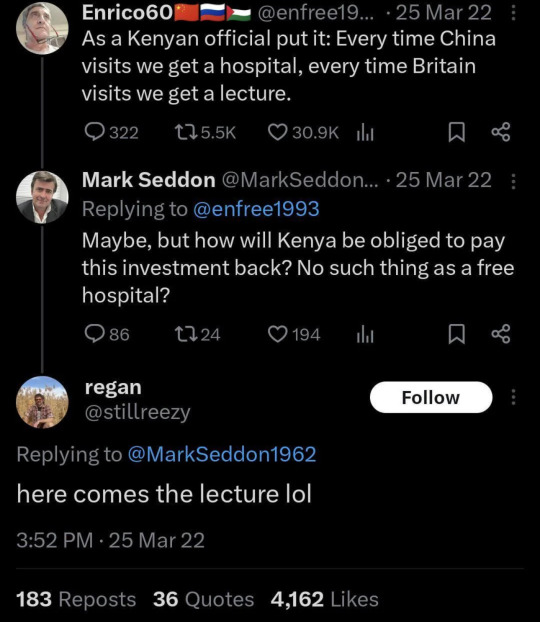
this tweet in response to why the reactions from the global south in response to partnering with China are so much more positive than the United States or the UK will be stuck with me forever
166 notes
·
View notes
Text




White Lily Cookie's braids were giving me a hard time so I decided to draw how Pure Vanilla's appearance would look instead lol. I was going to make him a jester like the faeries but then remembered that Shadow Milk Cookie likes plays and stories. A story wouldn't be fun if everyone was the same character, and Pure Vanilla was supposed to be more of a main character, unlike the faeries. So, going with the jester theme, I decided to make him a puppet king instead!
His appearance doesn't change in the animation because Shadow Milk Cookie figured that it would hurt White Lily more if Pure Vanilla Cookie betrayed her while still looking like himself. Casually planting seeds of doubt in her mind.
I also realised kings have knights, so I'm giving PV a knight :D (to be designed later). Also, I headcanon that Shadow Milk Cookie is a theatre kid who likes dancing.
edit: I spelt Knight wrong in the image XD

#fyp#cookie run#cookie run kingdom#cr kingdom#crk#pure vanilla cookie#shadow milk cookie#possessed pure vanilla cookie#pure vanilla is partially aware of his mind controlled state#sort of like when you're aware that you're dreaming but at the same time you're not??#sometimes parts of Shadow Milk Cookie's personality creeps into Pure Vanilla#and vice versa#shadow milk is somewhat fond of pure vanilla#unintentionally#though he still bullies him using white lily#i made this at 4am-#phantasmagoria crk
859 notes
·
View notes
Text



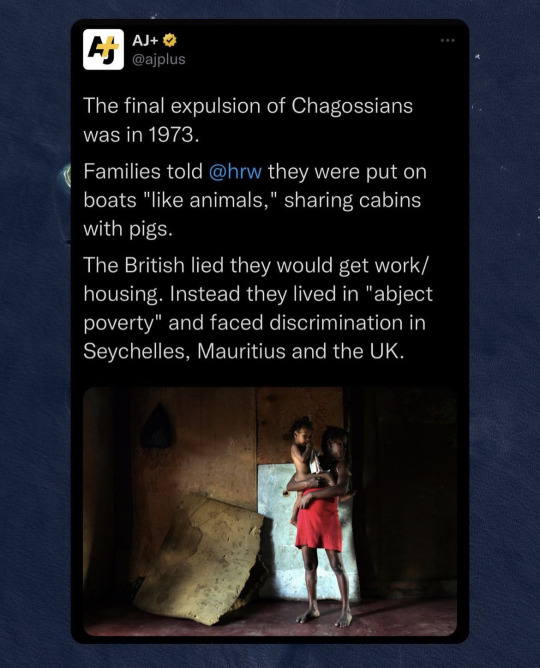


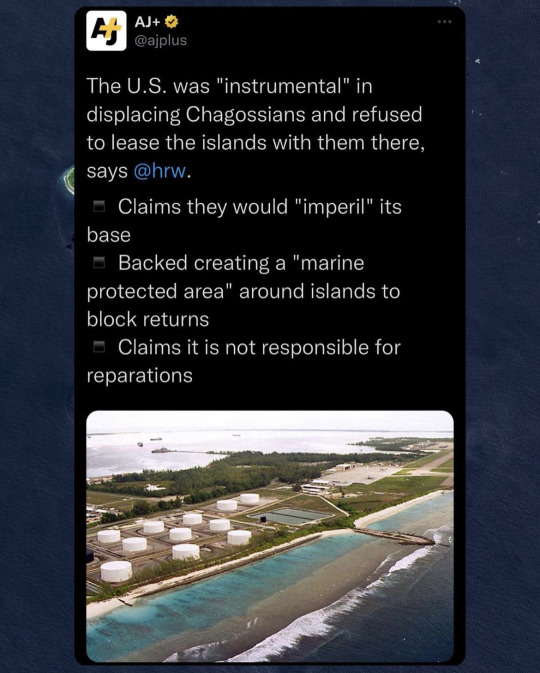


original instagram post
#reaux speaks#indigenous#bipoc#black lives matter#united kingdom#united states#human rights#chagos archipelago#chagossian#citizenship#mauritius
4K notes
·
View notes
Text




Gaza Ministry of Health: 4 Children Died Due To Cold.
Please Donate so we can travel from Gaza & save what is left of our children.
➡️To donate⬅️
🆘GoFundMe Link 🕊️
My Account Was Verified #99
#cold#children's health#childhood#children#save children#mutual aid🌿#humanitarian aid#give me attention#baby#send help#winter#stop war#usa#go fund me#free gaza#free palestine#gaza strip#gazaunderattack#save palestine#ai#gaza#ukraine#united kingdom#united states#europa#europe#all eyes on rafah#all eyes on palestine#support palestine#support
156 notes
·
View notes